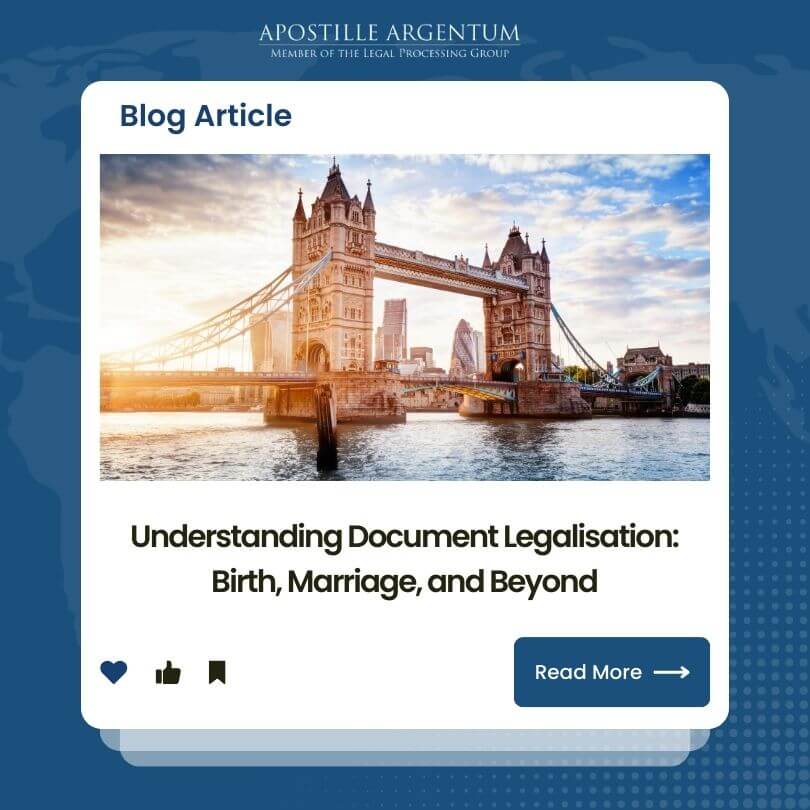APOSTILLE BLOG
Understanding Document Legalisation: Birth, Marriage, and Beyond

The Global Imperative: Document Legalisation in a Borderless World
In a world that increasingly operates on a global scale, the need for legal documents to be recognised across borders has become pivotal. Whether it’s for personal reasons like migration or professional necessities such as expanding a business overseas, the process of document legalisation plays a critical role in validating the authenticity of various certificates, including those related to birth, marriage, and more.
Birth Certificate Legalisation: Unveiling Your Identity Worldwide
A birth certificate serves as a foundational document, proving one’s identity and place of birth. However, when venturing abroad for education, employment, or residency, a birth certificate often requires legalisation to be accepted by foreign authorities. The process typically involves several steps, starting with notarisation by a recognised authority in the issuing country, followed by authentication by the appropriate government department or ministry and finally legalisation by the consulate or embassy of the destination country.
Marriage Certificate Legalisation: Love Knows No Borders
Similarly, marriage certificates may need legalisation for various reasons, such as sponsoring a spouse’s visa, applying for joint assets in another country, or handling international legal matters. The legalisation process for a marriage certificate usually involves notarisation by a recognised authority, authentication by the government department responsible for such documents, and legalisation by the consulate or embassy of the intended destination.
Beyond Birth and Marriage: The Spectrum of Legalisation Needs
Legalisation of documents extends beyond birth and marriage certificates. Educational certificates, power of attorney documents, affidavits, and commercial documents also often require legalisation for use in foreign countries. The process varies depending on the specific document and the regulations of the countries involved.
Why Legalisation Matters: The Key to International Recognition
Document legalisation serves multiple purposes. Firstly, it ensures the authenticity of the document in question, preventing fraud or misrepresentation. Secondly, it facilitates acceptance and recognition by foreign authorities, allowing individuals to conduct legal transactions or fulfill requirements abroad.
Navigating the Labyrinth: Understanding the Legalisation Process
Understanding the nuances of document legalisation can be complex and time-consuming. Seeking guidance from professionals or agencies specialising in document legalisation can streamline the process and ensure compliance with the legal requirements of the concerned countries.
Embrace Boundless Opportunities: Connect with Apostille Argentum
In an increasingly interconnected world, the need for document legalisation—especially for birth and marriage certificates—cannot be overstated. Whether for personal or professional reasons, ensuring the proper authentication and legalisation of these documents is crucial for navigating the complexities of international laws and regulations.
Legalisation processes may vary significantly from one country to another, and staying informed about these procedures or seeking professional assistance can make the journey smoother when dealing with vital documents across borders.
Ready to embark on your international journey hassle-free? Our experts at Apostille Argentum specialise in navigating the intricate maze of document legalisation.
Click the button below to connect with our dedicated team. Let us handle the complexities while you focus on embracing a world without boundaries.